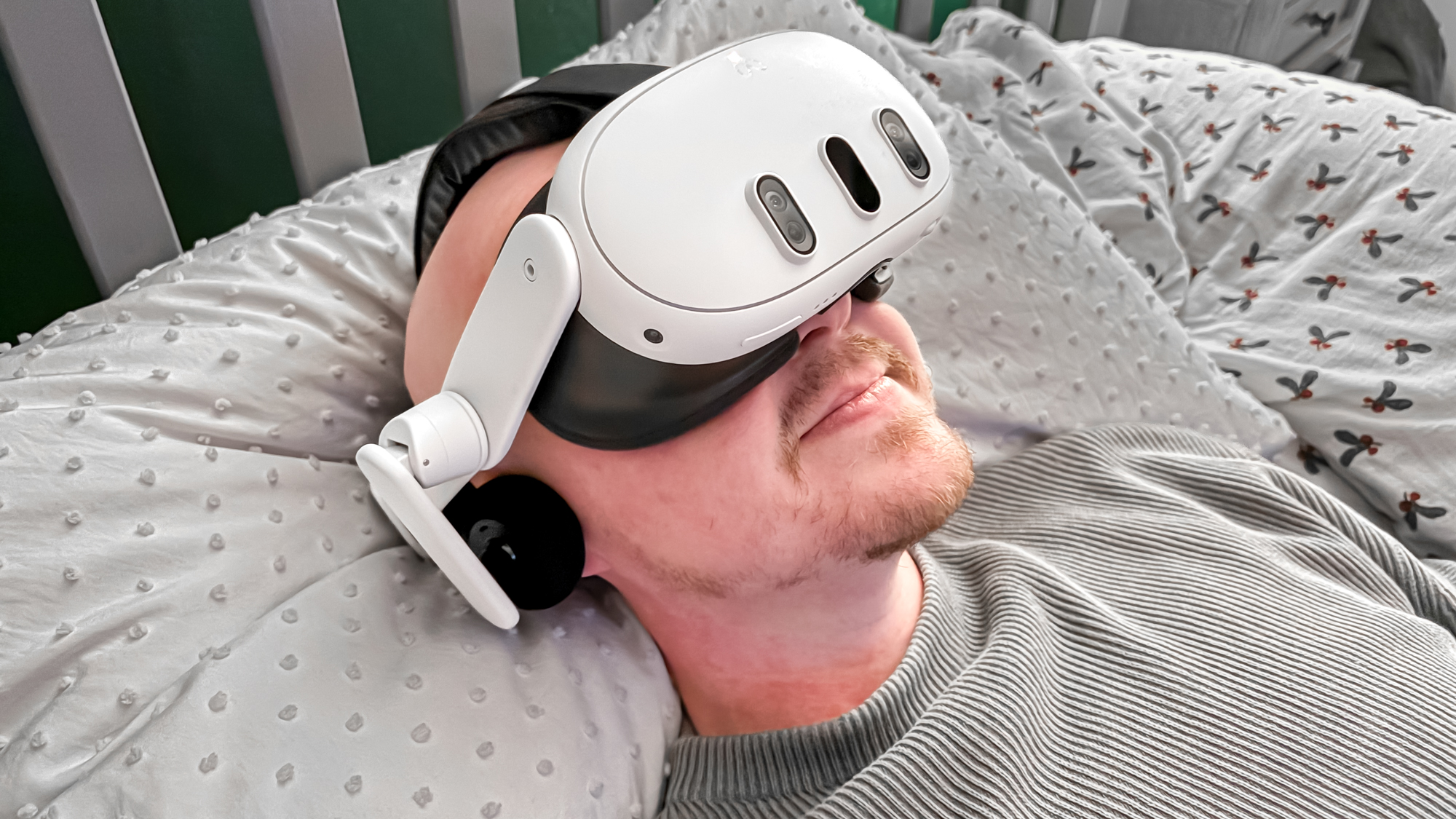The 3 am winter wake-up call — why it happens and 3 simple tricks to sleep through the night
Waking up in the night? Sleep experts reveal why
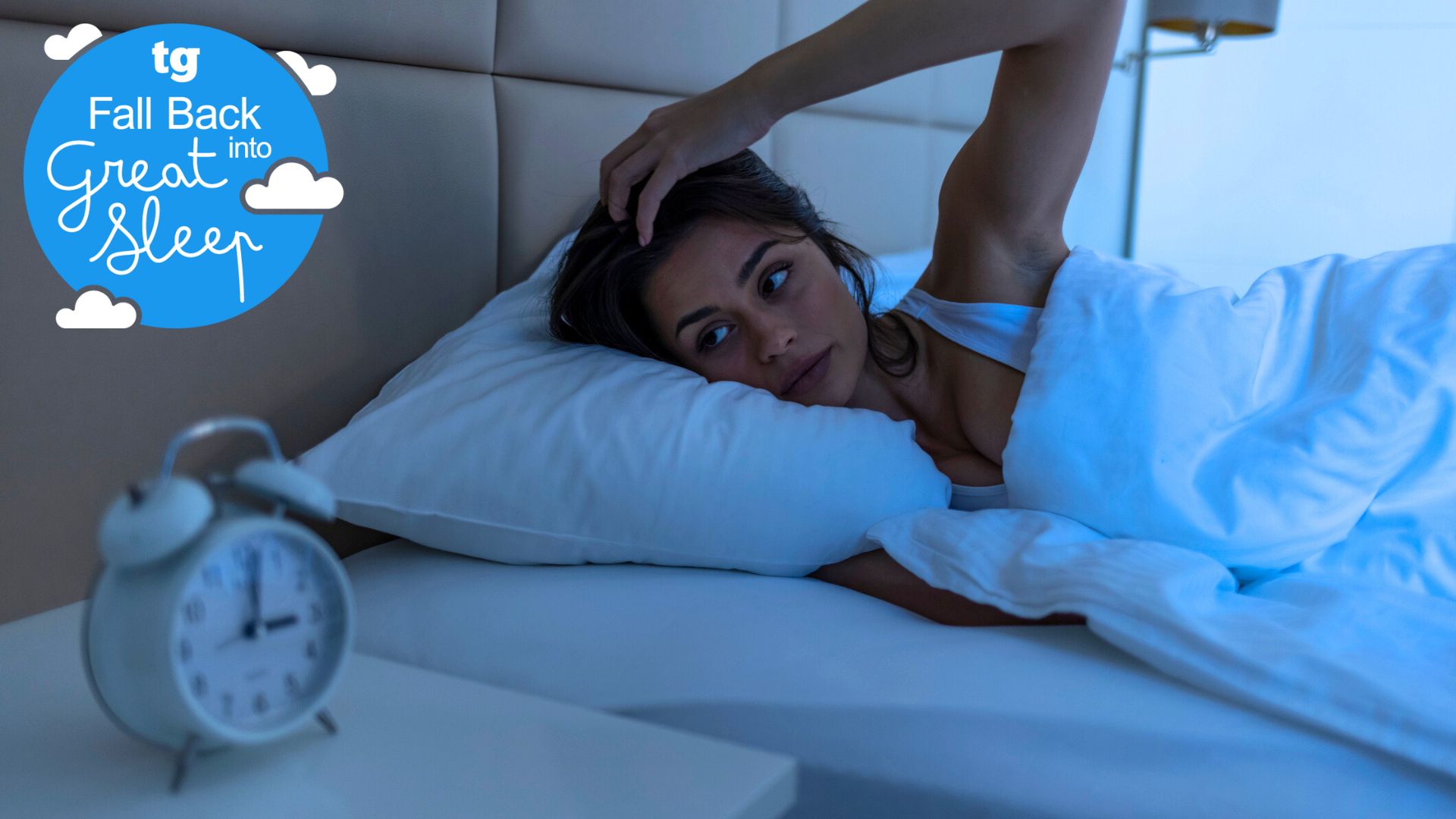
As winter draws in, along with the nights, some of us can start to see changes in our sleep — and may even experience 3 am wake-ups.
So, why does this happen? With temperatures dropping and less daylight, colder months can affect our circadian rhythm (our internal body clock), making it harder to stay asleep through the night.
For our Fall Back into Great Sleep campaign, we’ll look at, with the help of sleep experts, the reasons you could be waking up at 3 am, how to change your sleeping habits, and tips to help you fall back to sleep quickly if you do find yourself wide awake in the early hours.
What is the 3 am winter wake-up call?
If you’ve found yourself wide awake early doors — even though you usually sleep soundly through the night — you might be experiencing what’s known as the 3 am winter wake-up call.
It tends to happen more frequently during the colder months
Dr. Praveen Bhatia, a respiratory and sleep medicine consultant, explains that the wake-up call is a common seasonal sleep pattern where “people wake up in the middle of the night and struggle to fall back asleep.”
“It tends to happen more frequently during the colder months because winter disrupts several of the body’s natural sleep-regulating systems,” he explains.
Ana Carolina Goncalves, superintendent pharmacist at Pharmica, adds that waking up in the night can become more frequent when “circadian rhythm disruption fragments sleep, particularly during rapid eye movement (REM) phases."
Get instant access to breaking news, the hottest reviews, great deals and helpful tips.
“Even minor shifts (such as the clocks going back) of one hour can alter the timing of body temperature and hormone cycles, leading to lighter, less restorative sleep," she explains.
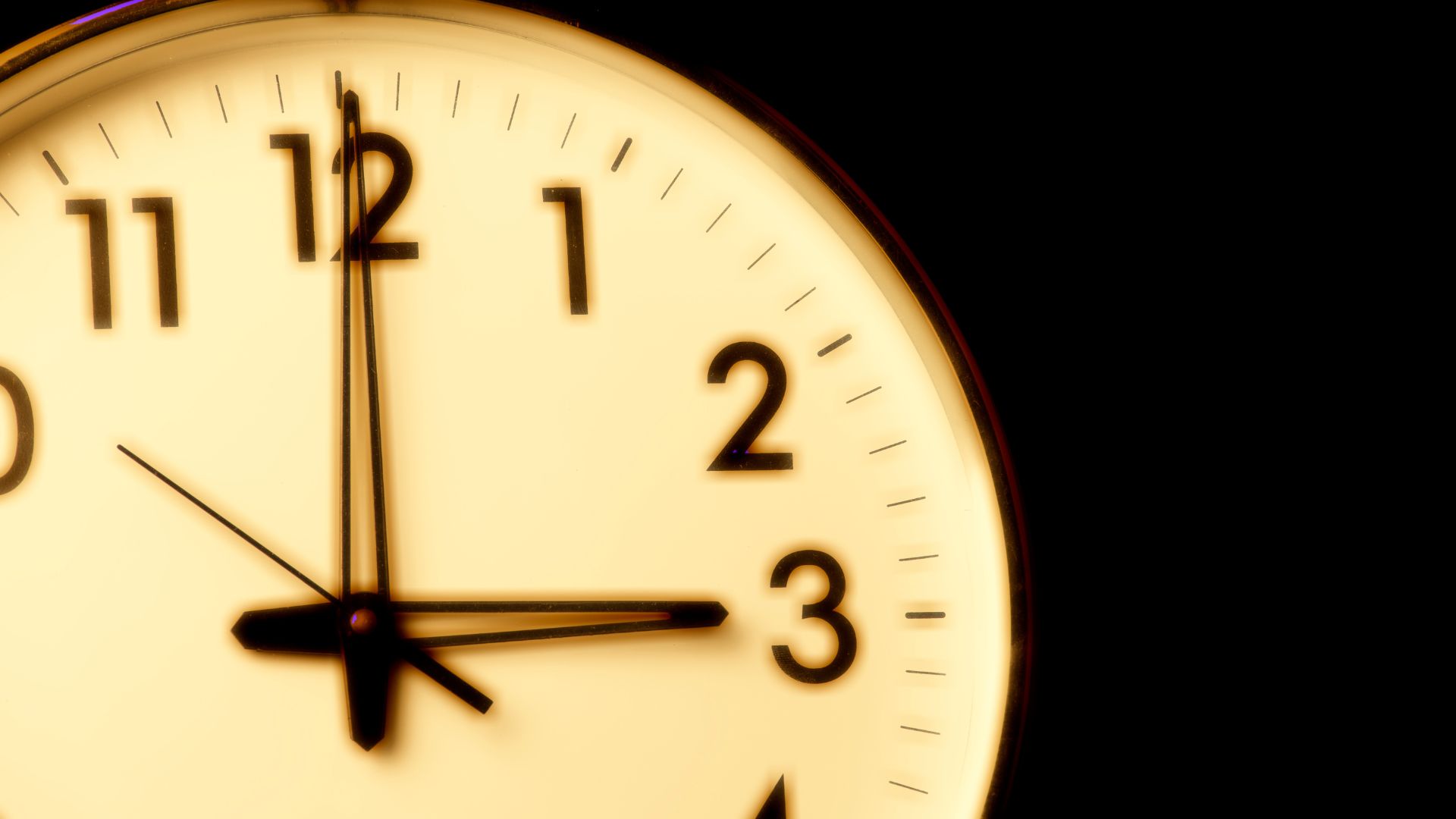
Why you’re waking up in the middle of the night this winter
Waking up in the middle of the night can disrupt your rest, leaving you groggy and tired the next day. Here’s why it tends to happen more often during the fall and winter months.
1. You’re not getting enough sunlight
If you're guilty of hibernating in the winter, trying to avoid the cold or wet weather, this could be impacting when you wake up. Dr. Bhatia explains this is because your body clock (circadian rhythm) depends on light exposure.
We all have an internal body clock called the 'circadian rhythm.' It determines when we feel sleepy and when we feel awake, and is regulated by factors like daylight.
“Bright natural light early in the day helps regulate melatonin release at night, which then leads to you feeling sleepy and getting a good night’s sleep," Dr Bhatia says.
"When daylight hours shorten or you’re indoors most of the day, your circadian rhythm weakens, making it easier to wake during lighter sleep stages — often around 3 am, when cortisol starts to rise,” he adds.
The solution? “Aim for 20–30 minutes outdoors (ideally soon after waking, but nobody is perfect) to reinforce your body clock.”
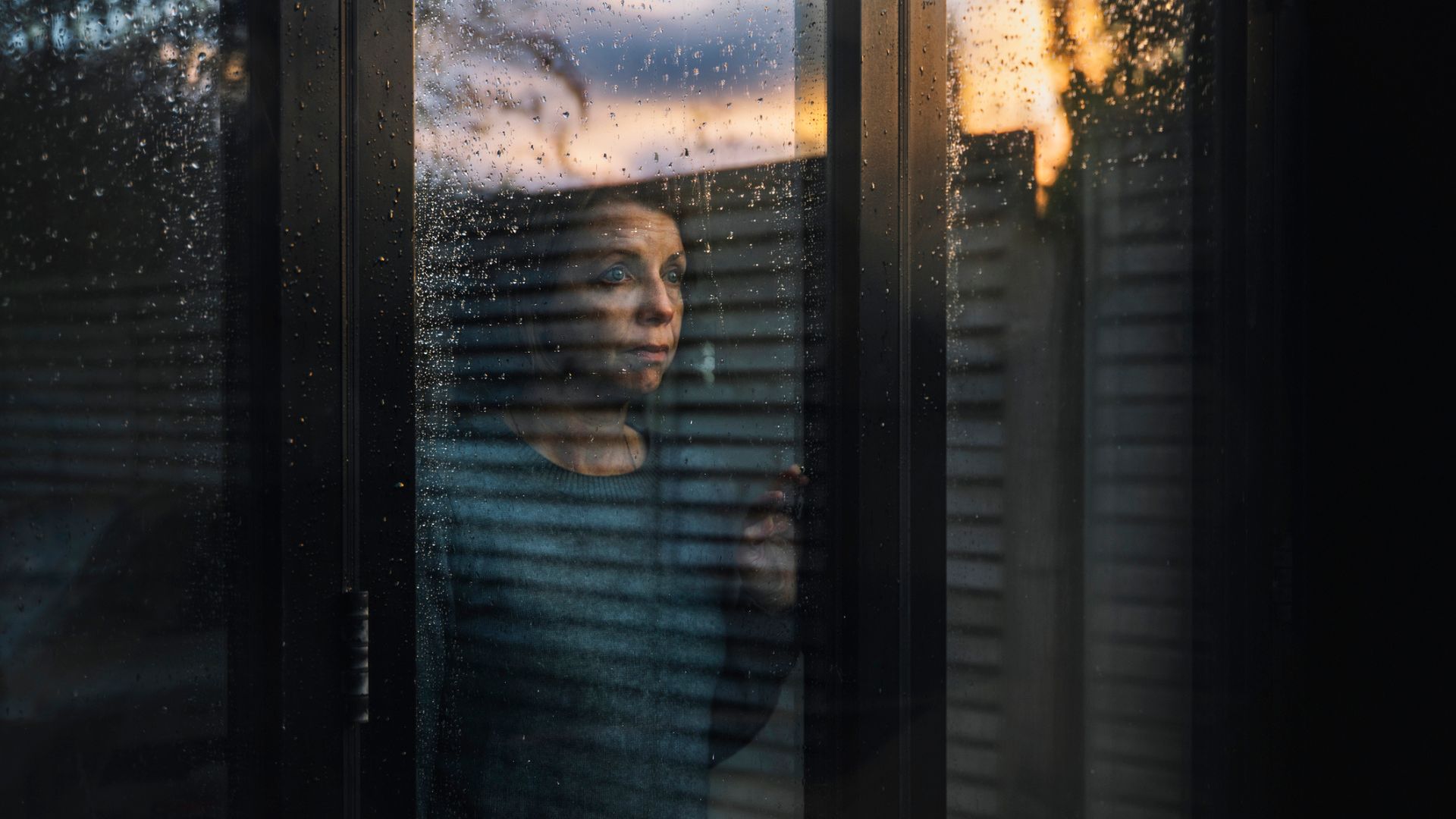
2. You’ve cranked the heating too high
Many of us go to bed with the heating on, especially when it's cold outside, but a cooler bedroom is actually better for sleeping.
Our core body temperature needs to drop at night to promote the release of hormones that help us sleep, such as melatonin, and a 2020 study showed that the ideal temperature for adults to sleep in is between 65 to 70 F/18 to 21 °C. Being too hot, on the other hand, can disrupt sleep.
According to research, in "situations where bedding and clothing are used, heat exposure increases wakefulness and decreases slow wave sleep and rapid eye movement sleep."
But cold weather can also cause 3am wake-ups — a happy medium is the goal. One option is to go to bed with a hot water bottle, which will cool as you sleep. Putting your heating on a timer will also ensure you don’t overheat in the middle of the night.
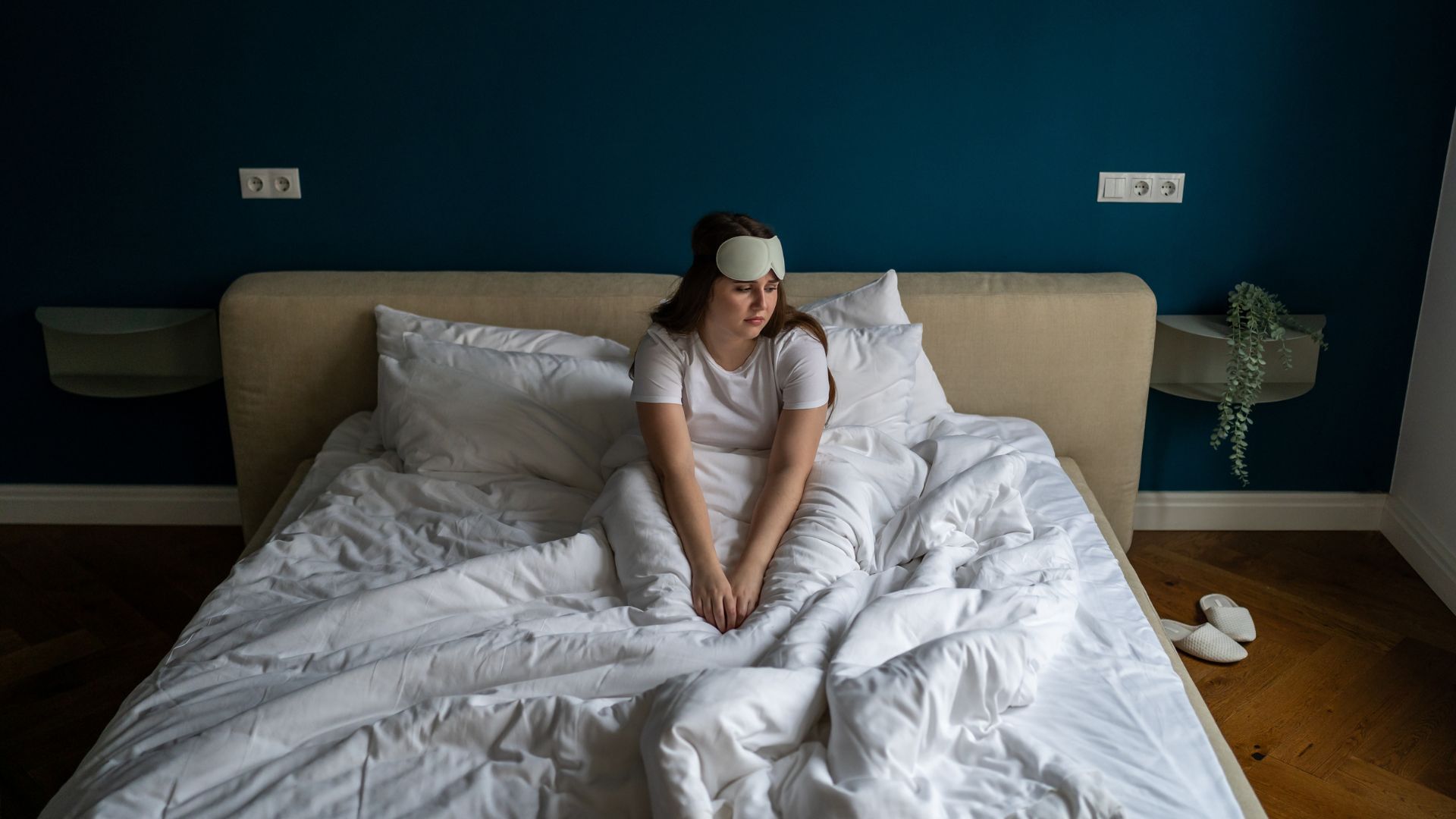
3. Congestion is keeping you up
Most of us have, or will, experience the common cold this fall and winter, and one of those symptoms is a blocked-up nose.
As well as this, Dr Bhatia says that dry indoor air (colder air contains less moisture) or winter allergies can cause nasal congestion and disturbed breathing.
The more uncomfortable your airways are, the more likely you are to wake up
“The more uncomfortable your airways are, the more likely you are to wake up. These effects are more likely to wake you later in the night, when REM sleep dominates and airway tone is lower.”
He adds that if “mouth-breathing or mild sleep-apnea-like symptoms are present, 3 am wake-ups become even more common.”
If you want to try and avoid a cold during the chillier months, you can try our 5 sleep tips to strengthen your immunity.
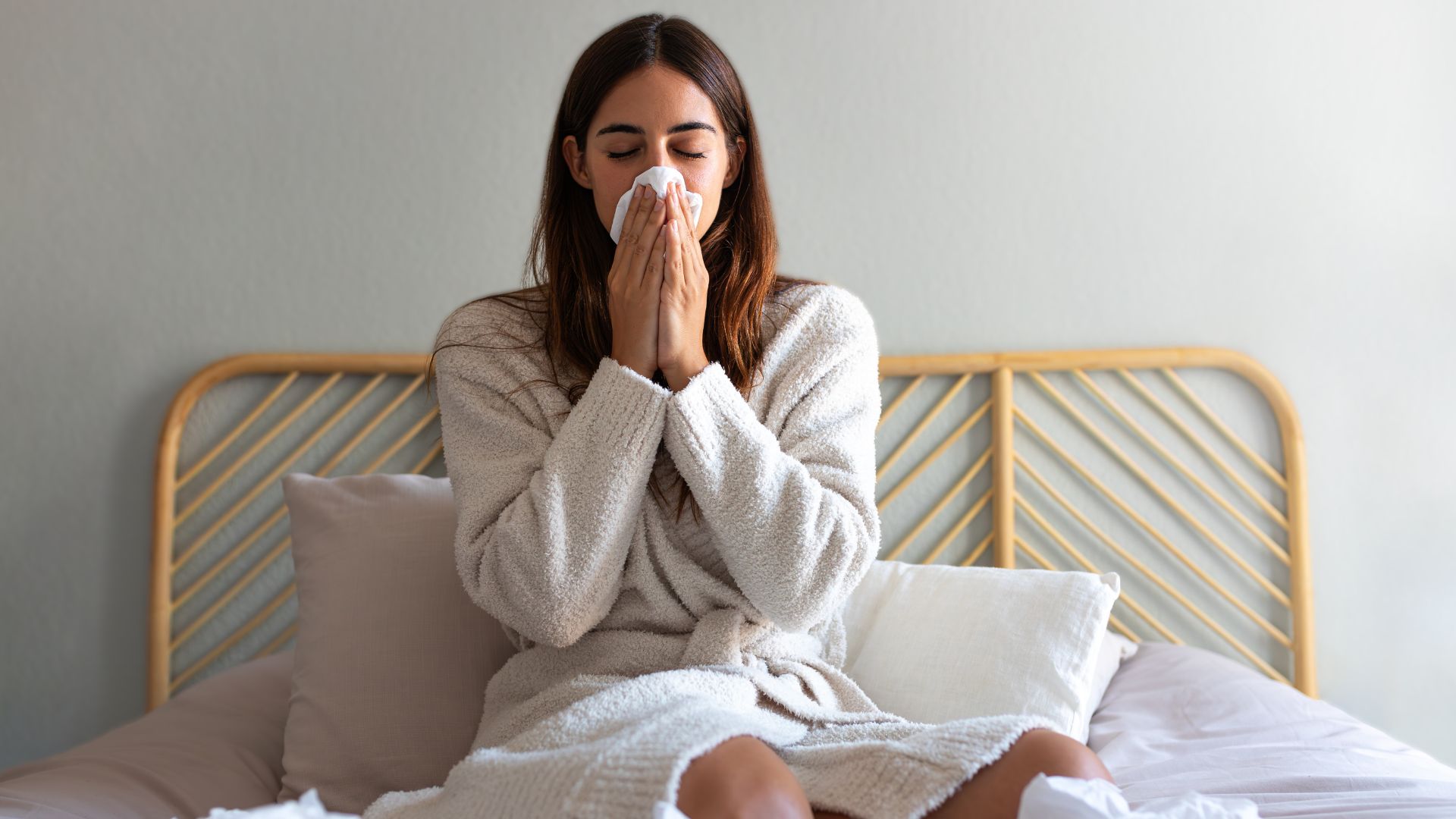
Expert tips to sleep through the night this fall
Thankfully, you don’t have to suffer through the 3 am wake-ups. Here’s how to sleep soundly through the night.
1. Wake up and go to sleep at the same time every day
If your bedtime and wake-up times are all over the place, start setting a regular bedtime now. Why?
Keeping them consistent seven days per week is especially important
“A circadian rhythm that is aligned with our regular bedtime/wake time can make it easier to fall asleep and wake up feeling refreshed,” says sleep expert Dr. Lindsay Browning.
“Keeping them consistent seven days per week is especially important during the winter when there are fewer daylight hours and we may spend less time outdoors," she says.
"Also, recent studies have found that sleep regularity may be as important as sleep duration.”
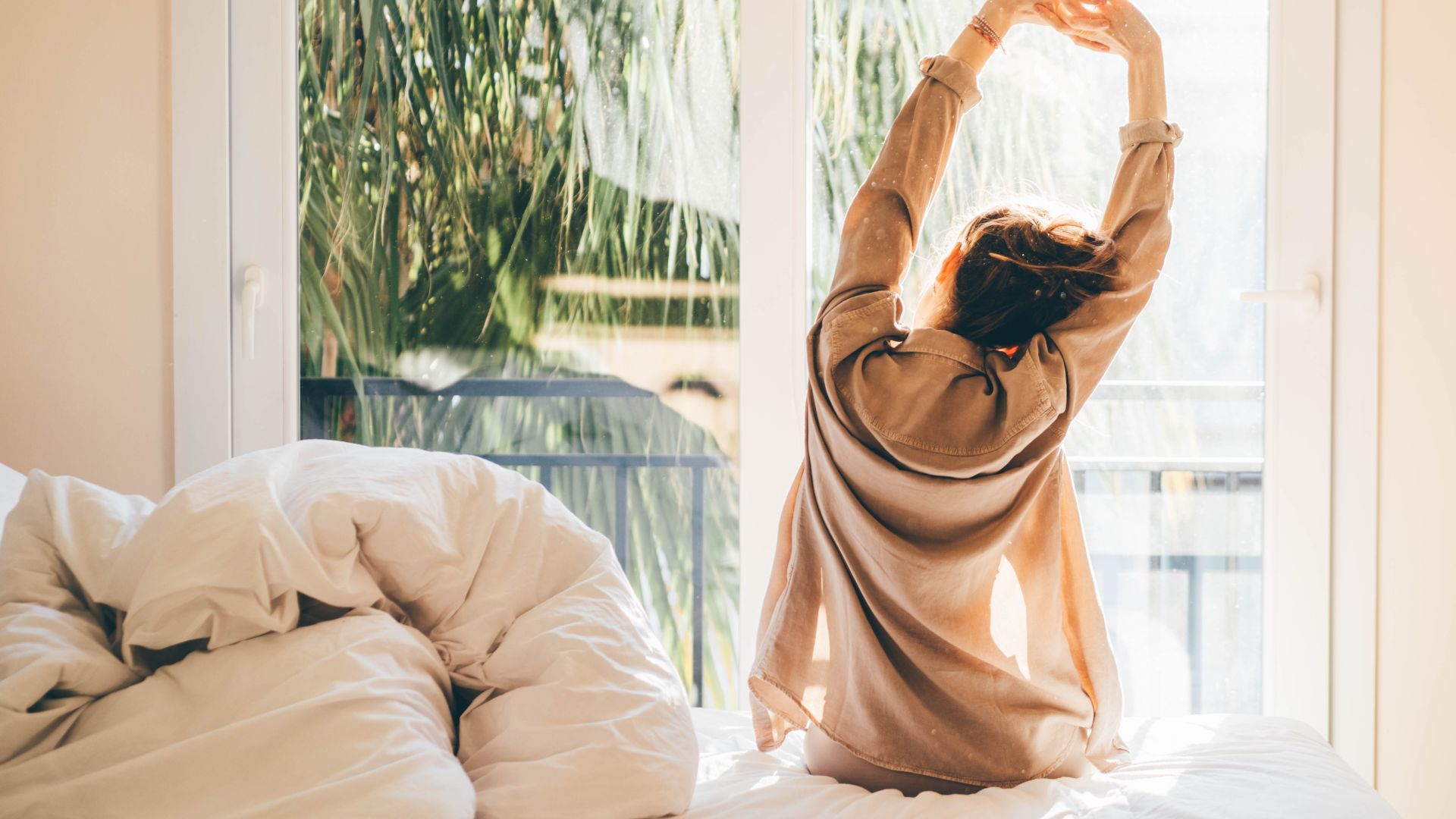
2. Swap your summer bedding out for winter materials
- Bamboo
- Wool
- Cotton
- Linen
- Silk
If you haven’t yet switched to your winter bedding, opt for breathable, temperature-regulating materials like wool.
They’ll keep you cosy without leaving you overheated, sweaty, or stuffy during the night.
Dr. Bhatia adds that breathable bedding also ensures airflow, but warns: “Don’t make your bedding too warm to compensate for a cold room, as this could also impact your sleep.”
3. Avoid stimulants close to bed
Goncalves suggests avoiding caffeine and alcohol, this is because caffeine blocks adenosine receptors in the brain, reducing feelings of “sleepiness and keeping the nervous system in a state of alertness for several hours."
“Alcohol initially acts as a sedative, but later disrupts deep sleep and REM sleep," she explains, adding that "Blue light from screens suppresses melatonin production and delays the natural urge to fall asleep."
You could also make changes to your diet, such as avoiding heavy meals or large amounts of fluid before bed.
“This will reduce digestion and bladder activity, which tend to put the body in an active state and wake us up," Goncalves explains.
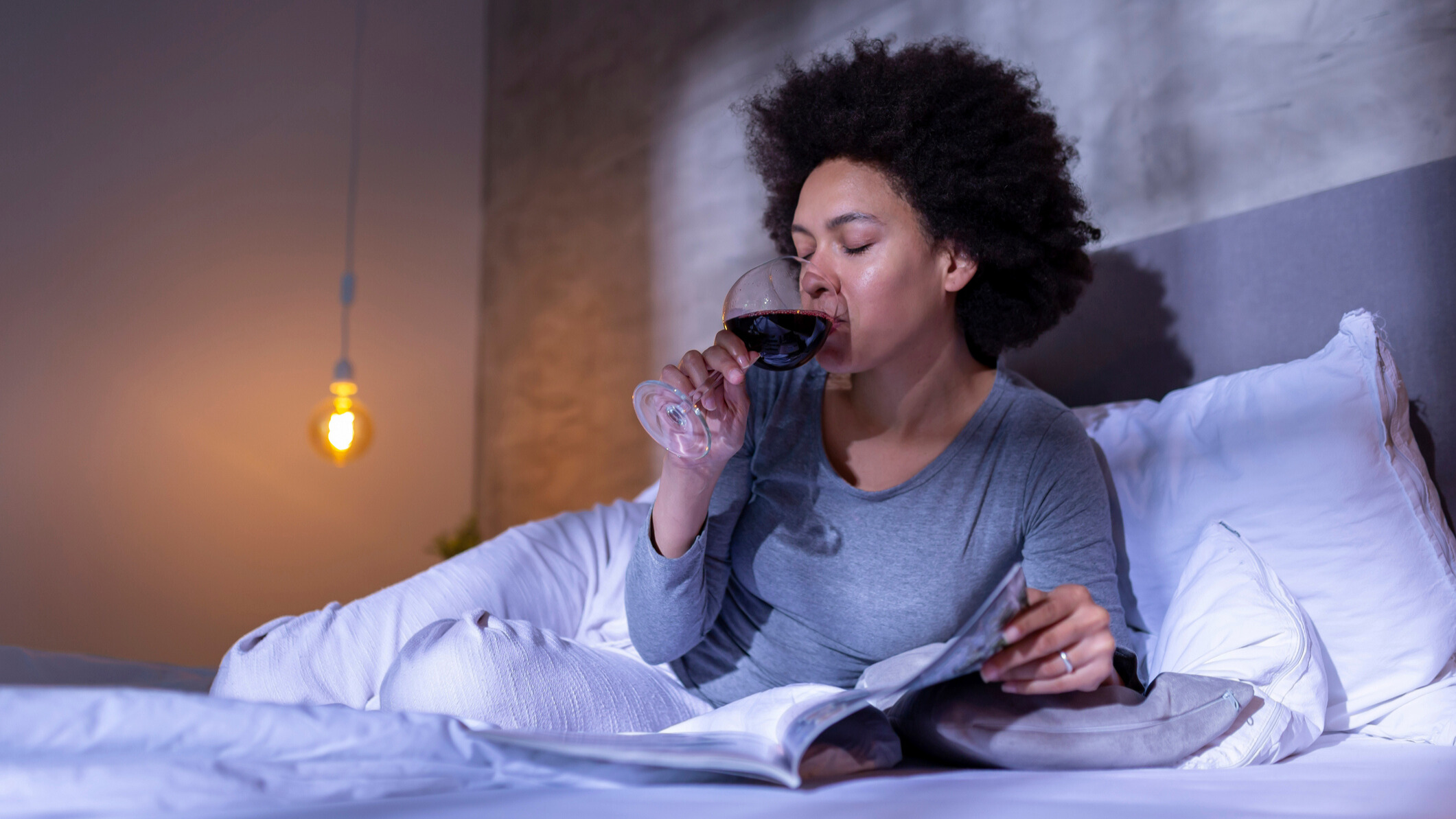
4. Address medical issues
Dr. Browning explains that if your sleeping difficulties have been going on for more than a few weeks, or if they begin to affect your daytime functioning, “concentration or mood, then it’s important to speak to your doctor about it.
You should also reach out for support if your mood is very low
“You should also reach out for support if your mood is very low, if you stop enjoying things that you usually enjoy or if you find yourself crying more than usual, as these could be signs of Seasonal Affective Disorder (SAD).”
SAD is a form of depression that occurs in line with seasonal changes, with symptoms including sleep changes, irritability, mood and weight changes and fatigue, which are generally more apparent in colder months over fall and winter.
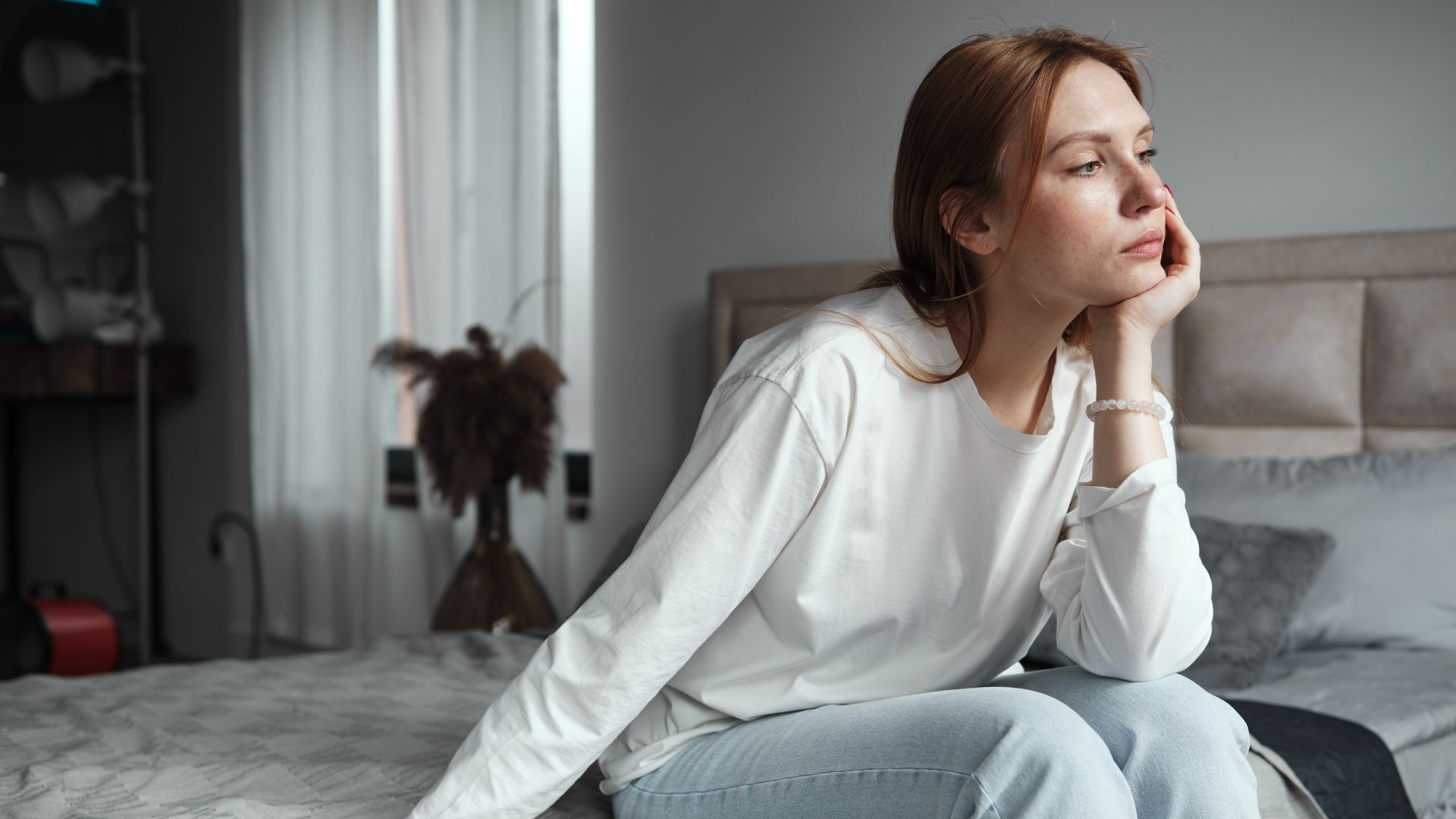
How to fall back asleep when you’re awake
- Cognitive shuffling: A relaxation technique that helps you fall asleep, cognitive shuffling distracts your mind with random, unrelated thoughts or images. When you break the cycle of focused thinking, it quiets your mind and helps you drift into sleep.
- Breathing exercises: From box breathing to 4-7-8 breathing, these techniques help calm your nervous system, relax you and help sleep onset.
- Getting up and doing something different: Instead of staring at the ceiling and letting your thoughts spiral, getting out of bed can help your brain break the link between your bedroom and sleep-related anxiety.

Sarah is a freelance writer who has been published across titles including Woman & Home, The Independent, and the BBC. Sarah covers a variety of subjects, including health and wellness. For Tom's Guide Sarah often writes about sleep health and hygiene, and interviews leading sleep experts about common issues such as insomnia and sleep deprivation.
You must confirm your public display name before commenting
Please logout and then login again, you will then be prompted to enter your display name.
 Club Benefits
Club Benefits





